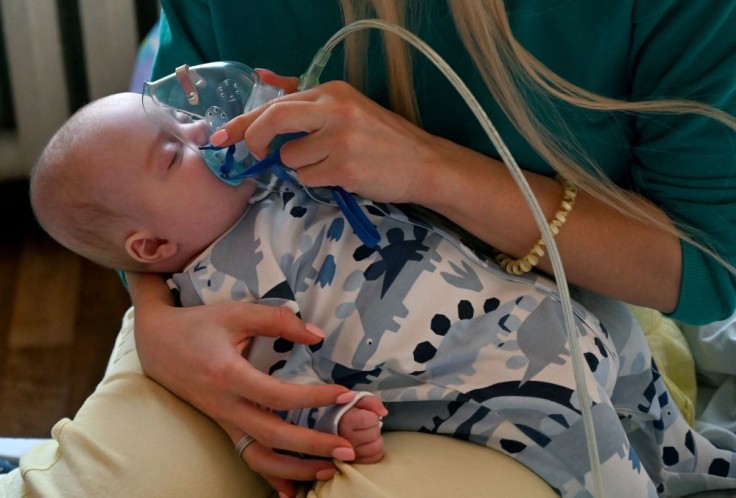
Mom Olivia Jenkins speaks out and raises awareness about laryngomalacia, following a scary and unforgettable incident where she nearly lost her newborn baby, Charlotte, while breastfeeding.
The 12-day-old infant suddenly choked and turned blue during her feeding time. Confused and alarmed, the 29-year-old mom from South Australia reached for the phone and called an ambulance while trying to help her choking child.
Three groups of first responders immediately arrived at the Jenkins' house. They administered emergency procedures and then took Charlotte to the hospital when the baby responded. Only then did Jenkins feel that her newborn was going to make it.
At the hospital, doctors explained to the mother that she witnessed a "brief resolved unexplained event" (BRUE) that commonly happens in babies below one year old. While she understood that it was not a big deal, Jenkins still made an appointment with her pediatrician to have Charlotte checked. She had this gut feeling that something was not right with her daughter.
Read Also: 'Cocomelon' Too Stimulating? Famous Kids YouTube Channel Allegedly Bad for Child Development
Observing the Signs of Laryngomalacia
Back at home, Jenkins noticed that Charlotte appeared to be struggling during breastfeeding. The baby would often have bouts of sputters and then try to come on and off her breast more times than normal.
She didn't have this problem with her two older kids, Henry, four years old, and Archer, three years old. She also hasn't heard of a baby choking while breastfeeding.
The visit to the pediatrician provided more clarity as to what was happening to Charlotte. The pediatrician asked her to demonstrate how she and her baby have their breastfeeding time. Right away, the doctor gave his diagnosis and said that Charlotte might have laryngomalacia after hearing a faint noise in her voice box.
To confirm the diagnosis, the mom and baby were referred to a specialist who further examined and assessed the development of Charlotte's nose and throat. Laryngomalacia means that Charlotte's voice box is floppy and soft, so the vocal cords block her airway each time she breathes in.
Laryngomalacia also led to Charlotte developing sleep apnea, which has affected how her brain sends signals to the pertinent muscles that control how she breathes. This meant that the newborn would need oxygen 24/7 so that her condition would not hamper any more developments.
Living with Laryngomalacia
It took some time for the family to get used to their youngest baby living with laryngomalacia. First, they need to make sure that they have an ample supply of oxygen bottles all over the house. Second, Charlotte's parents also had to learn to insert and tape a nasal cannula every day, which seemed uncomfortable initially.
According to KidsHealth, laryngomalacia usually "gets better on its own" with proper care, regular check-ups, and some medications if needed. In some cases, the baby might need to get supraglottoplasty to correct the voice box. Doctors are not sure of the exact causes of this condition, but it may be linked to the baby's development as a fetus.
Today, Charlotte is nearly a year old, and her parents can see that she could likely grow out of this condition. The Jenkins family is looking forward to the day when they won't have oxygen tanks in the house anymore.
"We are praying that she will be recovered enough to come off oxygen soon so we can see her beautiful little cheeks," the mom said.